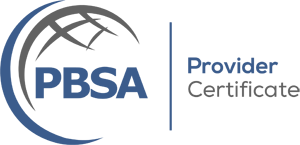The landscape of marijuana laws in workplaces across the United States continues to undergo profound shifts
What was once a contentious issue has now become a focal point for employers and employees alike, as state and federal regulations wrestle with the complexities of medicinal and recreational marijuana use.
The Evolution of Legalization
The journey towards marijuana legalization began with California’s landmark Proposition 215 in 1996, paving the way for medical marijuana use. Since then, over 35 states and the District of Columbia have followed suit, embracing medical marijuana, while 23 states and D.C., notably Colorado and Washington in 2012, have gone further to legalize recreational use. Despite these state-level reforms, federal law remains steadfast, categorizing marijuana as a Schedule I controlled substance. This federal stance complicates matters for employers, particularly those in industries with federal oversight or contracts, where mandatory drug testing policies may still apply.
Navigating Legal Complexities
The dichotomy between federal and state marijuana laws raises numerous challenges for employers. Questions abound regarding the enforcement of zero-tolerance policies, accommodation for medical marijuana users, and the practicalities of testing for impairment in safety-sensitive roles. These issues are exacerbated by the rise of remote work, blurring jurisdictional lines and requiring employers to rethink their approach to drug testing policies across multiple states.
Adapting Workplace Policies
In response to these challenges, many employers are reevaluating their drug policies to better align with the current legal landscape. Traditional zero-tolerance policies are being reconsidered in favor of approaches that focus on impairment detection rather than off-duty use. Companies are also exploring new methods for assessing impairment, such as performance-based evaluations, to ensure workplace safety without unfairly penalizing employees.
Education and awareness programs are on the rise, helping employees understand their rights and responsibilities under evolving state laws. Accommodating medical marijuana use and regularly reviewing drug policies to reflect legal updates are becoming standard practices, as companies strive to strike a balance between compliance and employee rights.
Legal Guidance and Risk Management
Given the legal complexities involved, many employers are seeking expert legal counsel to craft policies that navigate federal and state laws effectively. Clear procedures for handling incidents involving marijuana impairment are essential to mitigate liability risks and ensure a safe working environment for all.
Looking Ahead
As marijuana laws continue to evolve, staying informed and adaptable remains crucial for businesses aiming to maintain compliance and foster a productive workplace environment. By understanding and addressing the legal nuances surrounding marijuana use, employers can protect both their interests and the rights of their employees effectively.
In conclusion, while the landscape of workplace marijuana laws may be complex and ever-changing, proactive measures and informed decision-making are key to navigating this terrain successfully. By prioritizing compliance, safety, and employee well-being, businesses can navigate the challenges posed by marijuana legalization in 2024 and beyond.

Blaine is the Co-Founder and COO of Western Verify, and spends his free time hosting parties or traveling with his amazing family.


